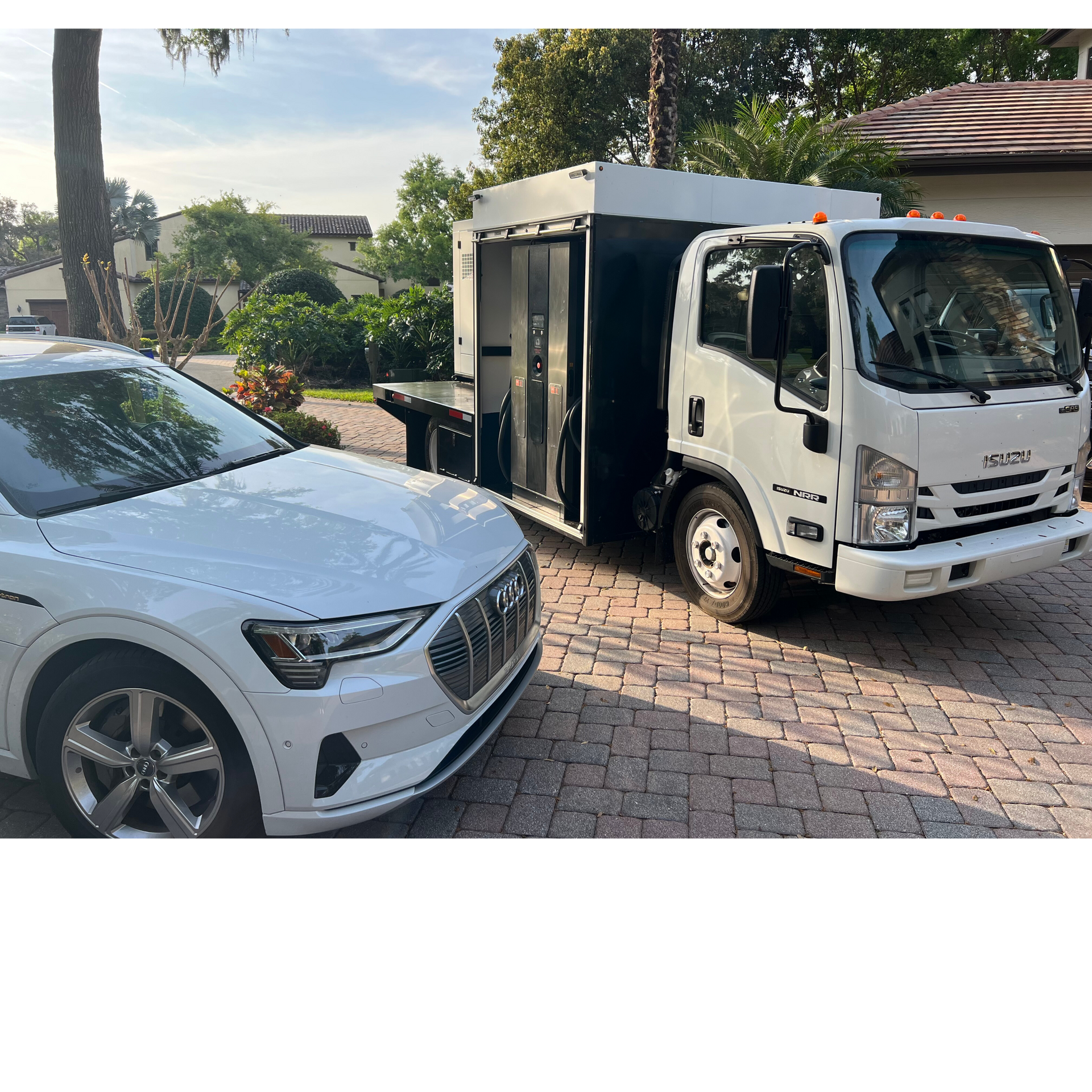The Future of EV Charging Infrastructure: What to Expect and How to Stay Ahead of the Curve

We've talked about the future of EV Charging, but what about the infrastructure required to support this essential service? The future of EV charging infrastructure is poised to be a game-changer, with significant advancements in both sustainability and technology. As electric vehicles (EVs) continue to gain popularity, the demand for robust, efficient, and eco-friendly charging solutions is set to skyrocket. Here are some key predictions for the future:
1. Integration of Renewable Energy Sources
Sustainability will be at the forefront of future EV charging infrastructure. The integration of renewable energy sources such as solar and wind into charging stations will become more widespread. Solar-powered charging stations, for instance, are expected to become a common sight, particularly in urban areas and along highways. This will not only reduce the carbon footprint of EVs but also contribute to the broader adoption of green energy.
2. Advancements in Fast-Charging Technology
Fast-charging technology is expected to evolve rapidly, drastically reducing the time required to charge EVs. Innovations such as ultra-fast chargers with higher power outputs (e.g., 350 kW and beyond) will enable drivers to charge their vehicles in a matter of minutes, comparable to refueling a traditional gasoline vehicle. These advancements will address one of the primary concerns of EV users—charging time—and make long-distance travel more convenient.
3. Wireless and Autonomous Charging
The future will likely see the rise of wireless or inductive charging, eliminating the need for physical cables. This technology could be integrated into parking lots, roads, and even at homes, allowing EVs to charge automatically when parked or in motion. Coupled with autonomous vehicles, this could lead to a scenario where vehicles drive themselves to charging stations, charge, and return to their owners, making the process entirely hands-free.
4. Smart Charging and Grid Integration
Smart charging systems will become more sophisticated, allowing for better integration with the electrical grid. These systems will optimize charging based on grid demand, electricity prices, and the availability of renewable energy. Vehicle-to-grid (V2G) technology will enable EVs to not only draw power from the grid but also return excess power to it, helping to stabilize the grid and promote energy efficiency.
5. Expansion of Charging Networks
As EV adoption grows, charging infrastructure will expand beyond urban centers to include rural and underserved areas. Governments and private companies will collaborate to build an extensive network of charging stations, ensuring that EV drivers have access to reliable charging options regardless of their location. The expansion will likely include ultra-fast charging hubs along major highways and at key destinations.
6. Sustainable Materials and Practices
The construction and operation of charging stations will increasingly prioritize sustainability. This could involve using recycled and eco-friendly materials, energy-efficient designs, and green building practices. Additionally, the lifecycle impact of charging infrastructure will be minimized through innovations in recycling and repurposing old equipment. The addition of mobile charging units powered only by renewable fuel sources like green propane and natural gas are also a welcome solution for sustainable charging practices, particularly for disaster recovery efforts and government fleet charging.
7. User-Centric Innovations
Future charging infrastructure will likely see significant improvements in user experience. This could include more intuitive interfaces, seamless payment systems, and real-time data on station availability and charging status via mobile apps. Personalized charging plans based on driving habits and energy needs might also become commonplace, further enhancing convenience for EV owners.
8. Global Standardization and Interoperability
As the EV market becomes more global, there will be a push towards standardizing charging interfaces and protocols. This will allow EVs of different makes and models to use the same charging stations, facilitating cross-border travel and making EV ownership more convenient. Interoperability between different charging networks will also improve, providing drivers with a seamless charging experience regardless of the provider.
Conclusion
The future of EV charging infrastructure is bright, driven by sustainability and technological advancements. As renewable energy integration, fast-charging technology, wireless charging, smart systems, and global standardization evolve, EVs will become an even more attractive and viable option for consumers worldwide. The ongoing expansion and improvement of charging networks will ensure that the transition to electric mobility is smooth, efficient, and environmentally friendly. Momentum Groups is continuing to lead the charge, with innovative partnerships with industry leaders such as
ZEROVA Tech and
The Propane Education & Resource Council. Stay tuned for more industry resources and news!
